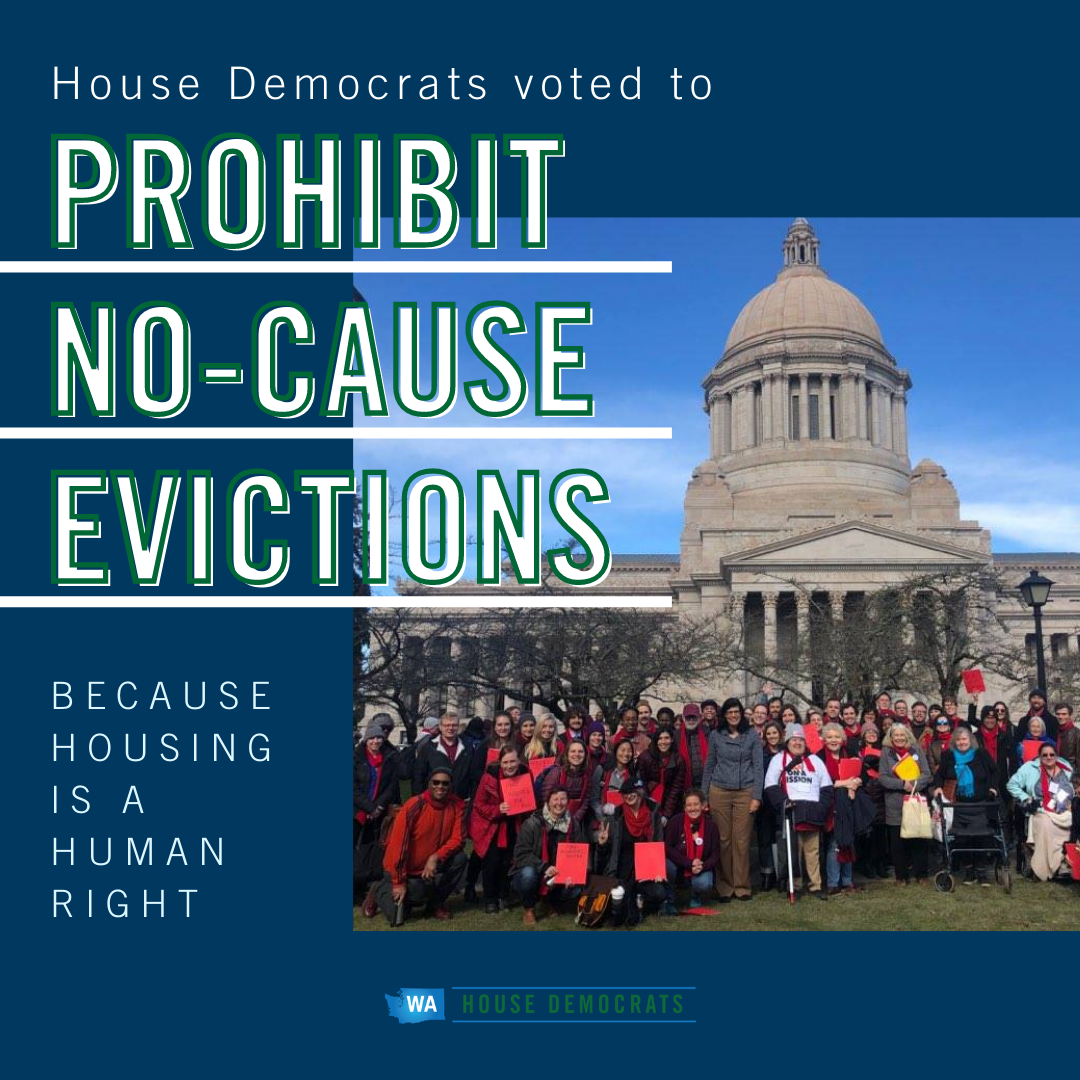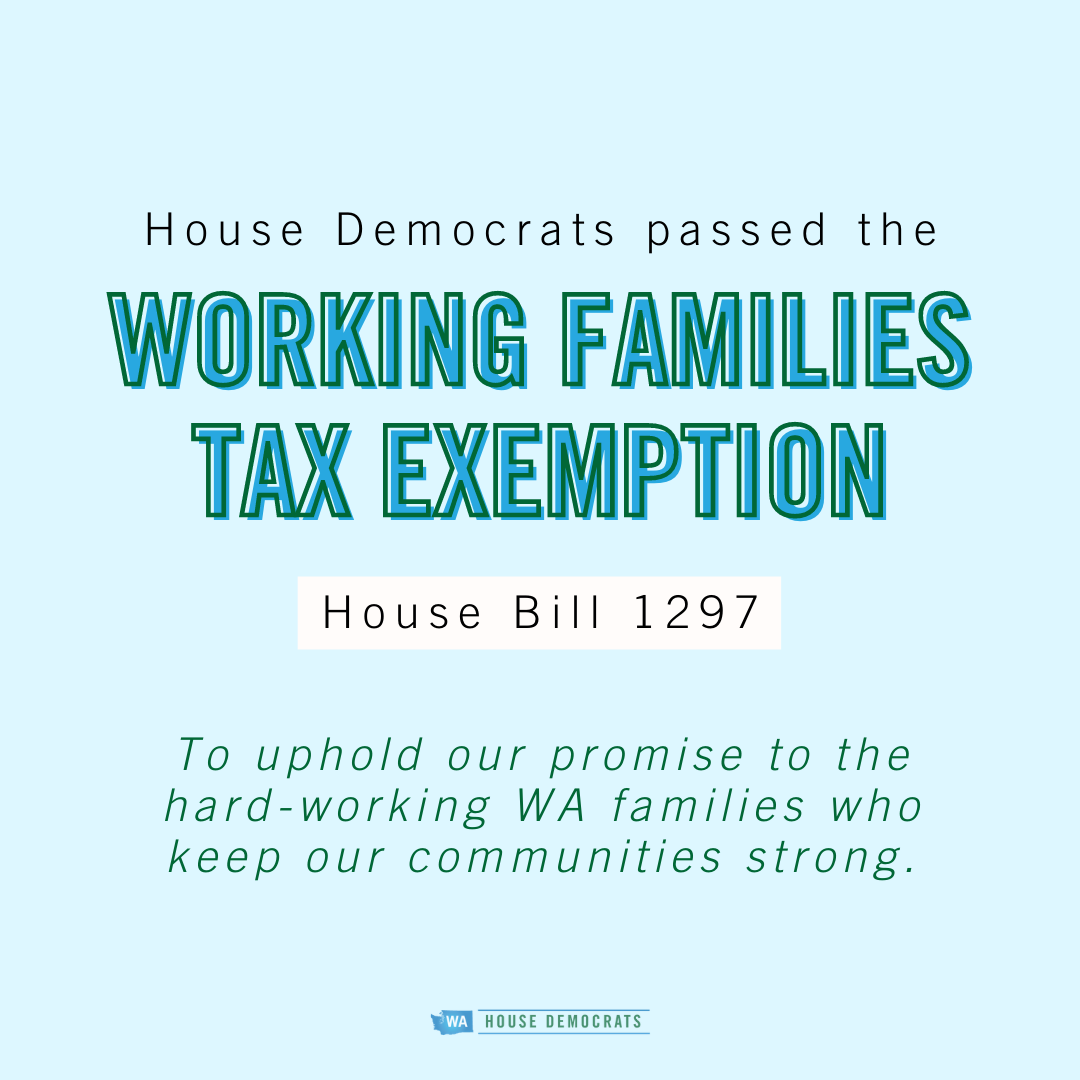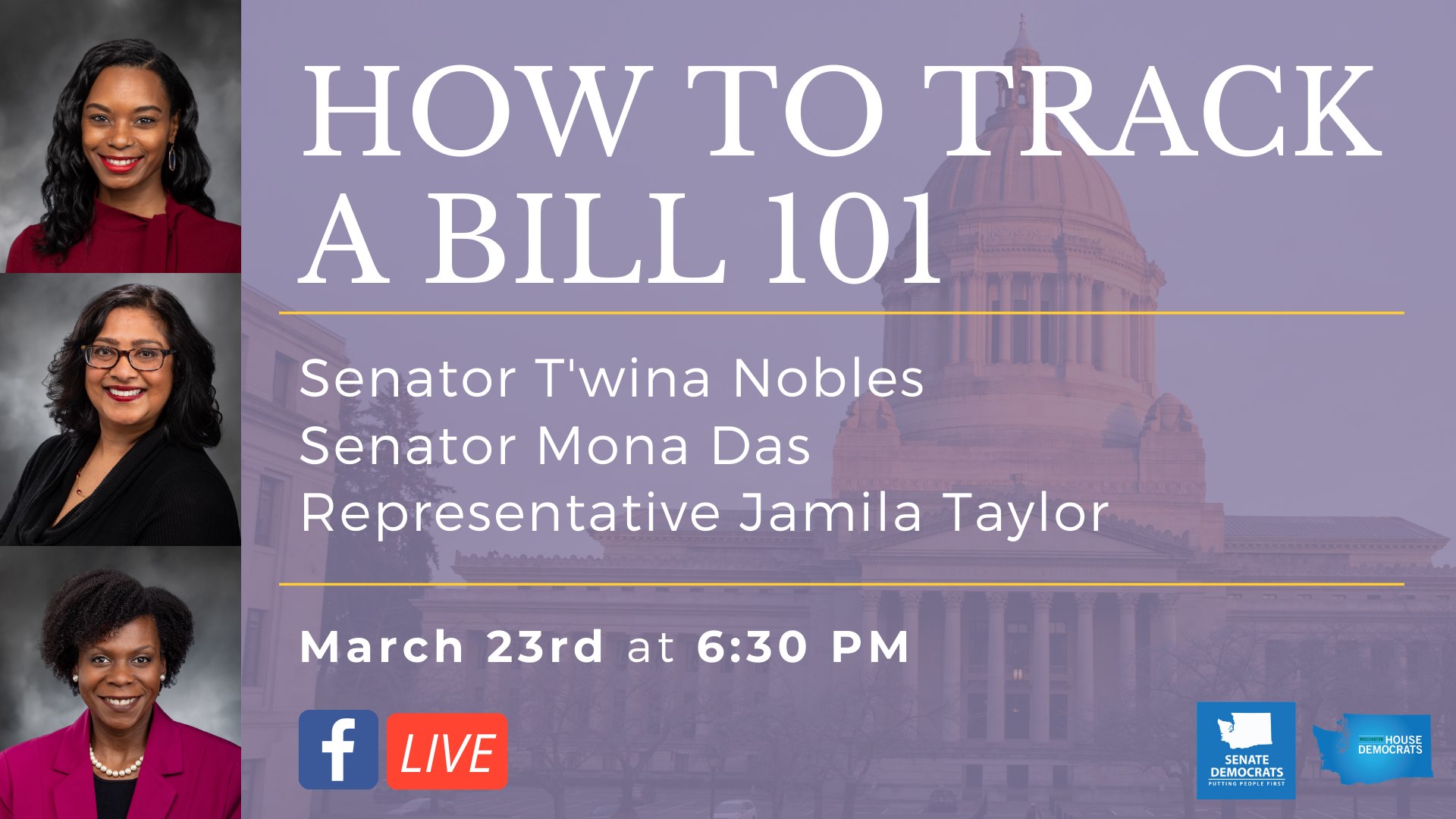Friends and neighbors,
First, I want to offer my solidarity to our Asian American neighbors, friends and family. Racist and gendered violence hits communities disproportionately but harms us all. We must hold people accountable for justice, uplift marginalized voices to heal and continue to push for a future where people are free to be who they are without fear of hate.
As Rep. My-Linh Thai said in a statement earlier this this week condemning anti-Asian violence, which you can read in full here: “Justice knows no limits when we rise in solidarity — with strength, with hope, and with joy — to uplift our dignity and humanity.”
Help and protections for renters
The pandemic has been hard on renters and small landlords. In the 30th Legislative District, where so many of our residents are renters, too many people are struggling to keep a roof over their heads. That’s why a big focus of mine this legislative session has been pushing for bills that provide much-needed relief.
The Legislature passed a COVID-19 relief package last month that includes funding for small landlords most impacted by unpaid rent. Check out this link for more information about the Limited Landlord Relief Program and how to apply for relief. And for more information about rental assistance, visit this link if you’re a King County resident and this link if you’re a Pierce County resident. Please also share these resources with your family and friends.
Here’s a look at three housing bills I’m proud to support:
–HB 1236: Requires landlords to give tenants a legitimate reason for ending their tenancy and more time to make new living arrangements. We already have a similar policy here in Federal Way, but state law currently allows landlords to remove someone from their home with a 20-day notice without telling them why. We can’t allow renters to be forced into homelessness through no fault of their own, especially in the middle of a pandemic.
–HB 1515: Allows landlords to offer tenants the choice of paying a fee instead of a full security deposit upfront. Moving costs can be high and especially burdensome for people who move frequently. This bill will bring more flexibility to tenants struggling to come up with the money for a security deposit and help people access better housing options.
–SB 5160: Creates a mediation program for landlords and tenants to help tenants catch up on rent and provides access to free attorneys for low-income renters. It also expands programs to help landlords recover losses from unpaid rent during the pandemic — important, necessary legislation to address the COVID-19 housing crisis that’s taken a toll on our communities.

Bills for working families and police accountability
We reached a big deadline last week for passing bills out of the House. The end of February and early March were a busy couple of weeks, with major legislation being passed to address economic recovery, the child care crisis, police accountability and much more.
As part of that push, the House passed bills to make child care more affordable and accessible and put more money in the pockets of working families by expanding the Working Families Tax Credit. This tax credit means greater financial stability for more than 400,000 taxpayers and will improve the lives of 1 in 4 children in our state.

The House also passed bills to ban dangerous and unacceptable police tactics like chokeholds, neck restraints and no-knock warrants; set the clear expectation that de-escalation should be an officer’s first instinct and deadly force should only be an absolute last resort; and ensure young people have access to an attorney when they’re read their rights or detained.
These three bills were introduced by my seatmate Rep. Jesse Johnson, and they’re on the Black Members Caucus’ list of priority bills this session.
An update on State v. Blake
You may have heard that the state Supreme Court ruled as unconstitutional the Washington state law that said simple possession of drugs was a felony. First, let me be clear: this does not mean that people can buy and sell drugs on the street without fear of prosecution. That’s still illegal. But the Legislature is now considering how to approach the question of simple possession of illegal substances (which are still illegal under federal law).
I’m working with a group of House and Senate legislators to determine our next steps and how to implement changes this year. The big questions I’m considering are:
-How do we keep children safe from substance use?
-How do we divert people into treatment programs when their primary form of interaction with authorities (previously law enforcement) is gone?
-What services and funding are needed to ensure that people get help for their substance use disorder?
I want to make sure that whatever the solution is, we’re improving outcomes. All of us have seen how substance use has overwhelmed our courts and impacted families. We have to make some changes, though it may take time to implement new strategies. For now, I’m working with my colleagues to determine a course of action in the last five weeks of the session.
Now is the time to stay involved
There’s still more work to be done to get bills across the finish line and over to the governor’s desk. Now is the time to stay involved! If you need a refresher on the legislative process, tune in next week for a Facebook Live event with me, Sens. T’wina Nobles and Mona Das. We’ll talk about how bills get created and passed so you have the tools be engaged.

Thanks for reading! Please don’t hesitate to reach out at 360-786-7898 or Jamila.Taylor@leg.wa.gov. You can also follow me on Facebook for the latest.

Jamila Taylor
